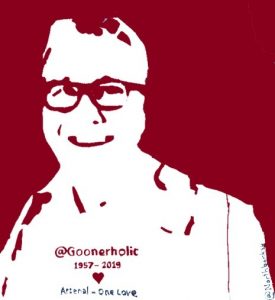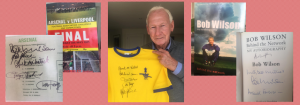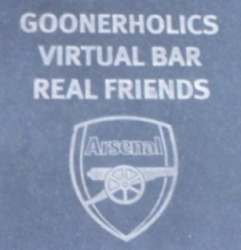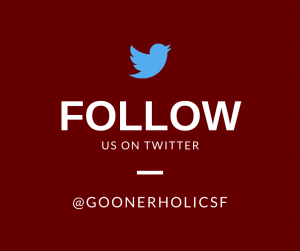
I don’t read many autobiographies, especially sporting autobiographies which are inevitably ghost written (this one enlisted help from Amy Lawrence and Henry Winter) and often lack intellectual challenge. There are exceptions but that’s not what I’m here to write about.
A few weeks ago our own Clock End Rider was kind enough to supply me with a ticket for the game with Forest. On my way into the ground snaking past the Armoury and up the staircase leading to the outside concourse I saw a familiar figure making his way to the match. I had to blink because I had only ever seen him immaculately attired in a (very expensive) suit. It was David Dein and he was dressed as casually as I was although without the nod to scruffiness that I managed to affect. I’d met David a few times many years ago and felt obliged to waylay him, if only to wind up my good friend Countryman100 who accuses me of flagrant namedropping! I ask you, how unfair can you be? Just as I was saying to Rishi Sunak the other day…
My encounters with David were not, in truth, etched deeply in his mind, but he was courtesy itself. We talked about Highbury, his book and the return of Arsene to the ground. I was just going to delve into our mutual interest in the resettlement of prisoners (of which more later) when he was hijacked by a number of young lads wanting selfies with a man that they must have been told about by their Dads.
‘See that man there son? He used to run Arsenal. He brought Arsène Wenger to the club.’
My task in this article at its most basic level is to review David’s book, ‘Calling the Shots’, but I’d like to do a little more and frame a debate about what Arsenal, and indeed English football, owes to a man who has been described to me as ‘the best networker in world football’.
Let me begin with a brief précis of David’s life. David was born in North London in 1943 to a Jewish family. His beginnings were modest and he developed a business trading sugar, which became very successful but then saw him him heavily defrauded by a business partner. He built strong links with Africa. His love for Arsenal began through being taken to games by his uncle. Like so many of us the spark which his uncle ignited burst into flame and in 1983 he was successful enough to buy 16.6% of the club. Famously, Peter Hill-Wood described his investment as ‘dead money’. How ill-judged was that comment!?
Dein eventually built up his shareholding to over 40% but had to reduce it because of the aforementioned business problems he encountered. He sold his shares to Danny Fiszman, a diamond merchant and (then) friend, another member of the wealthy North London Jewish community who have strong links with both North London clubs.
It didn’t take long for Dein’s influence to be felt within the club although when he joined the board he was rather different to his fellow directors. Arsenal had always been a patrician club with an innate class and dignity and what Dein came to feel was a lack of ambition. His involvement at the club began in a flat period, and there was clearly a culture clash behind the scenes as Dein tried to produce a more successful club. He was heavily involved in the decision to bring in George Graham as manager in 1986 and enjoyed a very warm relationship with him.
I was privy [Name drop alert] to see them both together when I did a bit of work with Dein in 1993 and there was a nice, easy rapport which suggested informality and ambition to me. Dein was masterminding the Bond scheme which met huge supporter opposition when it was first mooted. When I first met Dein, I mentioned my work on the Gooner. The temperature dropped several degrees, but I asked him if he had engaged with the fanzines, who were generally crusading organisations then, trying to press for better conditions and fairer prices. Ultimately he reached out to supporter forums much more and in turn those forums came to realise what incredible value the Bond scheme represented. Arsenal were starting to achieve great success and to pull significantly away from their great North London rivals down the Seven Sisters Road. Dein always speaks warmly of Tottnumb and enjoyed a close relationship with Irving Scholar, but as an Arsenal man our success gave him huge satisfaction.
It is interesting that Arsenal at that time were an amalgam of an evolving and increasingly ambitious football club mixed with a fairly stuffy institution. The driving force was the VICE chairman. PHW was a figurehead, affectionately thought of but not a power broker in the world of football. While the book begins with the end of Dein’s involvement with the club (to be dealt with later in this post), the most interesting part to me was his relationship with Arsène Wenger. The story of their first meeting, Charades at Dein’s house, and the burgeoning relationship is lovingly described. Dein describes friendships with all sorts of people, inside and outside football, yet he claims unequivocally that Arsène is his best friend. He drove Arsenal to recruit someone who was largely unknown and facilitated Wenger’s complete overhaul of the club. Sometimes in autobiographies one gets a sense that the writer praises a collaborator and in so doing bathes in strong reflected glory. This book doesn’t do this. Dein gives a paean of praise to Arsène, his only criticism being that he is miserable company after Arsenal had lost! The reality, I think, is that they were an incredibly well-matched partnership. Wenger brought a stream of incredible players to the club, sometimes at ridiculously low prices, when he was working hand-in-glove with Dein. Contrast this with the situation post-Dein. After 2007, Arsenal made fewer outstanding purchases and over time paid more money for less gifted players. Of course, the impact of the debt taken on to build the new stadium at Ashburton Grove had a big influence on our transfer horizons, but as time went on I believe Arsène became less and less confident about purchasing players. He badly missed Dein’s influence and faith in his ability to recognise a player.
The closure of Highbury and move to the new stadium with its consequent financial pressures created big tensions in the Arsenal boardroom. Legend has it that Dein favoured hiring Wembley (I’m so glad we didn’t!) and he began to feel that Arsenal required an overseas investor to provide the firepower in financial terms that we needed to compete with Chelsea, United, and Manchester City. He met Stan Kroenke, but that relationship seemed to sour and Kroenke was not bothered about buying Dein’s shares. He sold them eventually to Alisher Usmanov, who Dein saw as more ambitious and a better communicator of the ambition Dein wanted us to show – and an Arsenal supporter! Relations with Fiszman, Arsenal CEO Keith Edelman, and the Kroenkes deteriorated, and Dein left the board in 2007. He couldn’t face going back to the club for months until Karen Brady’s dad insisted he return with him a few months after his departure. He has been a regular ever since.
He recounts the conversation where he implored Wenger to stay with the club when the Frenchman wanted to resign. Say what you like about David Dein, but his primary desire has always been to see Arsenal become a very successful football club. He has 10 seats and six Club level memberships and gives match tickets to people he meets through the Twinning Project he has created with UK prisons. The head of maths education at the prison where I chair the Monitoring Board tells me Dein offered him a seat when he heard he was an Arsenal fan.
The other theme of the book is Dein’s work in helping to devise and create the Premier League and his work with the FA, where he was hugely influential on the International Committee. Without being indiscreet he does suggest that Sven Goran Eriksson’s reputation as a ladies man was well deserved! The trauma of Hillsborough affected him significantly and persuaded him that the game needed to move rapidly into the 21st century. He can fairly be described as one of the architects of professional football in England.
It must be said that in discussing the book with [Name drop alert] Bob Wilson, who likes and admires Dein, he did tell me that opinions at Arsenal are very divided on the truth of Dein’s assertions, particularly those relating to why and how he left in 2007. But perhaps that’s to be expected, as Mandy Rice Davies once implied at the Old Bailey!
Whatever the exact truth, there is no doubt in my mind that David Dein is one of the most influential figures in the history of Arsenal Football Club alongside Herbert Chapman, Tom Whittaker, Sir Denis Hill-Wood, Ken Friar, George Graham and, of course, Arsène Wenger. Without him it is possible that so much of the success we enjoyed between 1987 and 2006 would never have happened.
Dein is supposed to have made £75 million from the sale of his shares to Usmanov, having already made a substantial sum from the earlier sale to Fiszman. Not bad from an initial investment of £292,000, that dead money that PHW felt had been wasted while a vain man pursued an ego trip. When I saw him walking quietly across to Club Level before the Forest game, I saw an Arsenal fan off to see his team, not a brash entrepreneur sweeping into the club. I wanted to ask him about his prison work which is appreciated enormously by the prison authorities in the UK and by the prisoners themselves. He has visited 167 prisons in the UK and regularly spends time with Lifers and those on the longest sentences. It’s not a glamorous way for a multi-millionaire to spend his time but it means a great deal to David and he creates really positive feelings among a group that don’t receive much positive public attention for fairly obvious reasons, particularly in the Daily Mail!
Dein will always divide opinion. Many people see a man who has made a fortune out of Arsenal and doesn’t deserve any sympathy for his effective dismissal from the club feeling that he was undermining the board. Others, and I am firmly in that camp, might remember someone who came to sit with bond holders as they selected their seats in the new North Bank, or who took huge interest in improving facilities (he has a thing about better quality toilets!) or who spent half an hour talking with me about how we could upgrade the match day experience at Arsenal. He might have completely ignored my suggestions but at least he listened!
I’ve touched on the direction of the book and the key themes. Given the journalistic expertise that was harnessed to produce it, I found the style a little too conversational. When you are as well-connected and such a good networker as Dein, there is inevitably a progression from famous person to famous person that were and are still in David’s orbit. That can get a little tedious [unlike name-dropping in a Goonerholicsforever article — Eds.] but it also does explain how he gets things done so effectively. It is significantly more interesting than Arsène’s autobiography, and is quite revelatory about the backstabbing that seemed to take place in the Arsenal boardroom. It’s nowhere near a classic sporting autobiography but it will interest most Arsenal fans, those over the age of 35 particularly.
Dein will be remembered above all as a huge influence on the game of football, a man who rose from humble beginnings in North London to shape the whole structure of club and of international football. Ultimately he was an Arsenal fan who through his own talent and hard work lived his dream. And so many of us have been much richer for it.










Thanks for your insightful and entertaining look at the great man’s book, TTG. Also great fun to read of your personal connection. All in all, another GHF piece of the very highest standard.
Great piece, TTG. I am firmly in your camp on DD. Arsenal lost a key asset when Dein left the club. As you imply, there are details of those Usmanov related shenanigans that we will never learn but there’s no doubt Dein’s contribution was sorely missed after he left the club and our transfer dealing never reached the same level until the Edu-Arteta combo found its feet.
Wonderful piece TTG.
If Dein had not gotten into bed with Usmanov and had carried on as Arsene’s foil then I expect we would have won a few more league titles and perhaps a CL or two, as well as seen some great players in red and white that we missed out on, not least when Arsene lost the assurity in the transfer market that Dein bolstered so brilliantly.
My underlying feeling re Dein is one of regret. We lost not only a fantastic operator but also a man who was the perfect foil for Arsene. Such a shame.
However, Usmanov, in particular, was a woeful decision for Arsenal football club. Dein has not griped about having to live with the consequences of that decision, but I wonder if he reflects privately on what poor judgment it was to bring that man into our club. It cost us, and him, very dearly indeed.
Excellent work, TTG. Very smooth read, felt like being back in ‘Holic’s bar and reading one of those Arsenal history posts he would write during certain interlulls.
An artfully crafted piece, TTG, and a wonderful combination of anecdotes and insights. DD is a fascinating character because he is multidimensional. Undoubtedly he was critical to our success in the early Wenger period, but history will judge him, as you hint, somewhat ambiguously as a man who took a wrong turn with Usmanov for the right reasons.
Absolutely superb, TTG, and without detracting from any of your other always engaging articles, your magnum opus.
I’m also firmly in your camp regarding David Dein. The sale to Usmanov was regrettable but surely no one can imagine he would ever have considered deliberately harming the club. One, albeit serious, misjudgment balanced against his contributions to the club, and a very good, honest radio interview I heard regarding the book, can only convince you that despite his own huge regret at the way Arsene was treated, he genuinely loves the Arsenal.
A superb book review TTG. Yes you are an unashamed name dropper (especially at lunch after the third glass of red) but you have the names to drop, the product of your many decades worth of involvement with The Arsenal. I too have brushed shoulders with the great David Dein, but never dared to approach him. He parks his car on match days in the car park of a primary school just off Hornsey Road, just north of the Tollington, close to where I used to park mine on the street, and has walked down the ground virtually in step with me. I enquired whether there were any vacancies in the school car park from the rather burly minders at the entrance and was told yes. You have to pay by the whole season (no problem) and the cost was £1500. For about 26 home matches. Or about £500 more than my match season ticket, or £57 per game. Too rich for this retired scientist.
I too am in the pro Dein school, though I shudder to think about what might have happened if we moved to Wembley. From what I have read, he is a genuine football fan (think about his words about Rocky, “we’ve got a 15 year old who can dribble like a Brazilian and he’s from Lewisham”), with extremely highly developed interpersonal skills. He maybe was too naïve for the boardroom politics which are a full on contact sport.
But I agree. A major figure in the last 40+ years of Arsenal Football club. I was lucky enough to win a signed copy of this book in a Twitter competition by Le Grove and really enjoyed it. If you haven’t bought it, stick it on your Christmas list.
One thing that TTG doesn’t touch on, but which a whole chapter is dedicated to, is the formation of the Premier League. Dein and Arsenal were leaders in that initiative (along with Spurs, United, Liverpool and Everton) which changed football. Arguably it opened up the game to nation state owners, sky (heh) high wages and many of the things which those of us of a certain age regret. But Dein argues that it had to happen for the sake of the game. One thing is for sure. Things couldn’t have stayed how they were.
C100: ‘If we want things to stay as they are, everything will have to change.’
Heh! From the Leopard by Di Lampedusa yes? I read it when we visited Sicily about four years ago.
C100@10: Spot on (see what I did there…).
Interesting headline in the BBC gossip section (not sure about the direct source):
“The long-term future of Argentina goalkeeper Emiliano Martinez, 30, at Aston Villa is in doubt due to friction with new manager Unai Emery. (Football Insider)”
There could be a communication issue for South Korea’s back five against Ghana unless they come up with nicknames because all five of them are called Kim
Great stuff TTG, you have made me want to buy the book.
Double disappointment for poor old Mexico who are on the verge of WC elimination. No, the disappointment does not stem from constipation but instead from Cameroon coming back to draw after being two goals down and thereby avoiding tying Mexico’s all-time record of nine consecutive defeats at the WC.
We drew Oxford United away in the third round of the FA Cup.
ttg, this is a wonderful piece. i didn’t even mind the name-dropping 🙂 i do feel there is a sliding-doors moment when dein was forced out; it took nearly a decade for us to win a trophy again, and the delays in negotiations and non-signings by arsène during the post-2007 era mounted and loomed large in our fortunes. that said, i think if eduardo wasn’t broken when he was we would have won the league that season, and maybe dein’s absence in the future wouldn’t have been as noticeable.
and, like matt says@15, time to buy the book!
The entire Juventus board has resigned
Has it even been ten years since Juventus recovered from their last major scandal? It seems to be corrupt, top to bottom, but have I heard that before?
c100@17, another time we played oxford united in the fa cup: https://www.youtube.com/watch?v=pBaY0dWbTpY
hopefully the conditions will be much better!
Juventus tarnished name seems to come up quite prominently in this one: https://en.m.wikipedia.org/wiki/Calciopoli
Scruz,
I was around at that Oxford game and we then played Sheffield Wednesday at Highbury in about March in the fourth round . The snow was piled high in London on the streets for months but my cruel parents sent me to school in the snow . And of course I had my chimney sweep round to fit in too. We had an extra week off at school because our boiler broke down after Christmas
Great stuff at 21 Scruz. Good thing we got the last laugh in the snow.
cheers ttg and bt8. ttg, i’m sure it was tougher in those days, but at least you had a boiler. we lived IN a boiler, ate nothing but cold chestnuts, and had to use our shoes as bedcovers.
If anyone else is experiencing Arsenal withdrawal symptoms, this video I found on Youtube did a great job of capturing some of our best moments of the season so far. https://youtu.be/C3XJia0087I we really have played some amazing football.
SHOES!!!! pahhh!
Oxford United play at the curiously designed Kassam Stadium in Littlemore just outside the city. It has stands only on three sides and is open behind one goal.
Cold Chestnuts!!! Luxury
Thanks Ned, classic stuff
i’d only seen the python version of that until a few years back. but marty feldman was one seriously funny man. love this version!
Congratulations Kolo Toure, appointed today as manager by Wigan. All the success.
Interesting news from Turin. More fall out from the failed ESL project?
Good to see you Cent. Thanks for that. I look forward to watching that and I’ll save that link for later this week.
Ned @28, a classic. Thanks for the memory.
Following hard on the heels of the Juve announcement comes an email from Arsenal plugging tickets for the friendly against the Old Lady on December 17.
Reminds me of the old stand up comedian’s closing. “I’m here all week. Do tell your friends becausing quite frankly I need the money”.
Bath@34: Not sure that it is fall out from the European Super League, but certainly draws from the same well. The club’s new chairman, Gianluca Ferrero, appears to be well-connected within the Italian legal and accounting establishment so I assume he is being brought in to at least give a passable impression of the club cleaning its Augean stables. This all smells of damage sanitation. Juve remains firmly in the control of the Agnelli family through its holding company Exor.
Scruz@32: At Last The 1948 Show and Do Not Adjust Your Set were the TV precursors of Python. Rough and ready first drafts of a lot of what would follow and clearly drawing on radio (I’m Sorry I’ll Read That Again) and stage (Cambridge Footlights) roots, but seminal in British comedy. Episodes can be found on YouTube.
C100@35: Lest we forget, our own hands are not entirely clean when it comes to the ESL.
Indeed not. But nor, Ned, are we accused of financial and accounting malpractice.
C100@39: That is true. And the allegations against Juve go far beyond malpractice.
bt8 @33
Kolo was an Invincible – full of energy and enthusiasm.
But can he do it on a cold night in Wigan? I hope so.
UTA.
Kolo has taken as his assistant Kevin Betsy who coached out U23s last season . He did very well and was lured to Crawley as manager ( taking our U18 coach as well in the process ). He lasted about ten games after a disastrous run . Crawley sacked them both . One wonders if he regrets jettisoning Arsenal only to end up
as coach at Wigan ?
TTG@43: It must be difficult to make the transition from coaching U-23s, where development is the goal, to managing a senior side, where it is all about results. A spell as assistant manager at a league club may be the interim step Betsy needs.
Just reading news about Ben White returning early from Qatar. Hope it’s not the dreaded mental health issues we all suffer from to varying degrees. Best wishes to him.
Hope all is well with Benny Blanco. Do we have any insight into what the ‘personal reasons’ are?
Separately, the lad in goal for Poland against Argentina looks useful. 🙂
I’ve not got a clue what is going on with Ben White, but it must be serious for him to be leaving a World Cup squad. I hope he and his family are okay, and I’m wishing him all the best.
As the club twitter account said, we are all with you Ben.
What GSD said @47.
Yeah, fingers crossed for Ben and his family though as GSD said it must be serious.
Lots of very happy folks in Japan today. Beating Germany and Spain and sending the German team home is several feathers in their cap.
Given the hour of the win (about 5am) how did Japanese fans watch the game Matt? Were there all night sessions in the bars, spilling over into breakfast beer?
Arsenal financial results 21/22
https://www.arsenal.com/news/financial-results-202122
What GSD said @47
Well in @50 Matt and congratulations to the LOTRS. 🇯🇵
I think most people just woke up for the 4AM start, watched on tv, and then went off to work, school or whatever. Some bars were open though, and a good time looked to be being had by all as far as I could see on the NHK news.
Next one is a midnight kick off so I imagine the bars will be packed.
Well in for the half-ton, OM.
The financial results suggest that the fine line between rebuilding a self-sustaining financial model after the pandemic and rebuilding the team to get back to the money-spinning CL is being walked with some success, although not there yet. The peons of praise for Kroenke for sticking his hand in his pocket struck me as overly fulsome, but still, credit where credit is due.
C100- thanks for linking this
Ned- You’ve summed things up very well. The reduction of the wage bill by £30 million plus helps enormously especially without European football. I suspect this upturn has continued although player sales revenue is disappointing but this appears the same for everyone .
TTG@57: The wage bill in the last financial year was the lowest since 2016-17.
2021-22: £212.3 million
2020-21: £244.4 million
2019-20: £234.5 million
2018-19: £234.9 million
2017-18: £223.3 million
2016-17: £199.4million
Apart from the level of the net profit on player sales, the income from loans seems derisory at £2 million, given we have eight first teamers out on loan and 16 from the Academy, even if the latter set are mostly development/shop window loans.
Ned @58, the low fee income from our loans is a direct consequence of our inflated salaries for underwhelming or unproven players whom we want to loan out. The hidden upside is the extent to which those loans contribute to the savings on the wage bill.
Bath,
Hopefully you are correct but when Ozil went on loan we paid virtually all his salary and didn’t receive a loan fee as far as I am aware . If we did it would have been derisory in tyecontext of his wage packet at that time . We are seemingly not good at negotiating outwards . I’m more accepting of our almost total ability not to get serious transfer fees but not to get loan fees if you aren’t reducing the wage bill much suggests there is work to do
Clearly, some loans, Ozil being one, Guendouzi another, were arranged just to get them away from the club, so I accept that we have to swallow the cost of that. But the likes of Pepe, AMN, Tavarez and Mari should generate some coin, surely?
>>>>>>>>>>>>>>>>>>>>>>>>>